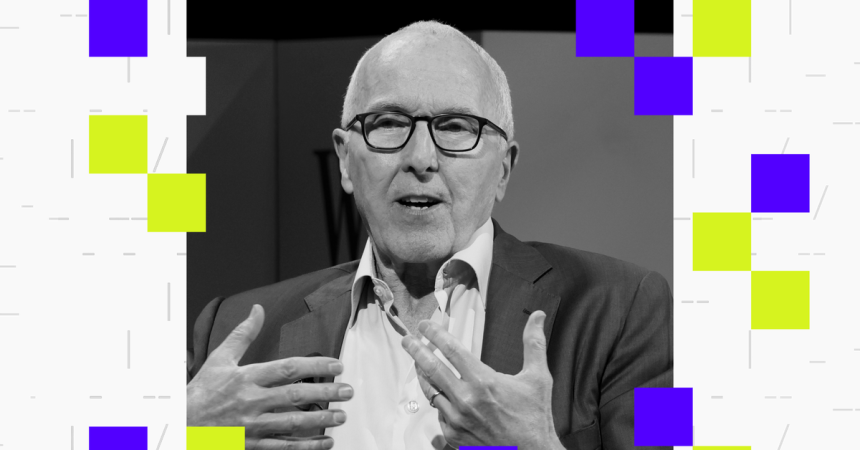ByteDance’s Gamble and McCourt’s Long-Shot Bid for TikTok
ByteDance, the Chinese parent company of TikTok, remains steadfast in its refusal to spin off the popular social media app in the US, despite looming threats of a ban. Their strategy appears to hinge on a potential reprieve from the Supreme Court or President-elect Donald Trump before the January 19th deadline. While tech giants like Amazon, Google, Meta, Microsoft, and Oracle remain interested onlookers, the situation grows increasingly precarious. Congress has issued warnings to Apple and Google, reminding them of their legal liability for hosting TikTok in their app stores beyond the deadline. Amidst this uncertainty, Frank McCourt, a real estate billionaire, has emerged as a persistent voice in the acquisition conversation, tirelessly promoting his "Project Liberty" plan to acquire TikTok’s US operations, having secured approximately $20 billion in backing for his bid. He envisions a decentralized future for TikTok, leveraging untested technology, and has even approached Kevin Mayer, TikTok’s former CEO, for potential involvement. Though McCourt has reportedly garnered interest from ByteDance’s American investors, his proposal faces significant hurdles, including potential opposition from the Chinese government and the unproven scalability of his decentralized platform, further complicated by the involvement of a cryptocurrency called Frequency.
McCourt’s Vision for a Decentralized Internet
McCourt’s ambitions extend beyond simply acquiring TikTok. He aims to fundamentally reshape the internet’s architecture, echoing the growing interest in federated platforms like ActivityPub and Bluesky. His vision encompasses a user-centric platform where users control their data, own their profiles, and even create and share algorithms, potentially revolutionizing online interactions and mitigating the perceived harms of centralized social media. McCourt views his Project Liberty not just as a business venture but as a critical infrastructure project, laying the foundation for a more equitable and user-controlled online experience. His plan involves gifting the Decentralized Social Networking Protocol (DSNP) to the world, while the associated blockchain, Frequency, and the TikTok acquisition itself would be commercial endeavors. He emphasizes that his primary objective isn’t solely financial gain but rather a fundamental shift in how the internet operates, with TikTok serving as a catalyst for this transformation.
Navigating the Uncertainties and Challenges
McCourt’s bid faces several significant roadblocks. First and foremost is the uncertainty surrounding ByteDance’s willingness to sell and the potential intervention of the Chinese government. Even if ByteDance is inclined to sell, regulatory approval from China is not guaranteed, adding a layer of complexity to the proceedings. Secondly, the technical feasibility of McCourt’s decentralized approach remains unproven, particularly for a platform as massive as TikTok. The proposed shift to a decentralized protocol, funded by McCourt and untested at this scale, introduces a level of risk that may deter some investors. Finally, the association with the cryptocurrency Frequency raises concerns for some, potentially hindering widespread adoption and adding another layer of complexity to an already intricate situation.
The Tech Giants and the Looming Antitrust Concerns
McCourt believes that large tech companies like Amazon, Google, and Meta are unlikely to bid on TikTok due to concerns over antitrust regulations and the potential reputational damage associated with acquiring a platform facing scrutiny over data privacy and user manipulation. He argues that purchasing TikTok in its current form, with its data collection practices and algorithms, would expose the acquiring company to increased legal and public relations challenges. McCourt posits that his approach, focused on decentralization and user control, addresses these concerns and offers a more sustainable path forward for the platform. This stance highlights the perceived risks associated with acquiring a platform under scrutiny and underscores McCourt’s belief that his decentralized approach mitigates these risks.
The AI Landscape and Investor Buzz
Beyond TikTok, the broader AI landscape continues to evolve rapidly. The NeurIPS conference in Vancouver showcased the latest advancements in AI, with researchers buzzing about topics ranging from AI safety to advanced reasoning and robotics. OpenAI remains a highly sought-after destination for AI talent, while the industry grapples with questions about the future trajectory of AI development. Microsoft’s AI CEO, Mustafa Suleyman, offered insights into the company’s AI strategy in a recent interview, highlighting the importance of conversational AI and the company’s close partnership with OpenAI. Meanwhile, Google showcased several AI-related projects, though many remain in development or are not yet publicly available. This ongoing race for AI dominance underscores the dynamic nature of the field and the intense competition among tech giants.
Looking Ahead: The Future of TikTok and the Internet
The future of TikTok remains uncertain. ByteDance’s decision, whether to sell or face a potential ban, will have significant repercussions for the platform’s millions of users and the broader social media landscape. McCourt’s audacious bid, while a long shot, offers a glimpse into a potential future for a more decentralized and user-centric internet. His efforts to engage with ByteDance, President-elect Trump, and potential investors underscore the complex interplay of political, financial, and technological forces shaping the future of online platforms. The coming weeks will be crucial in determining TikTok’s fate and potentially charting a new course for the internet itself.



